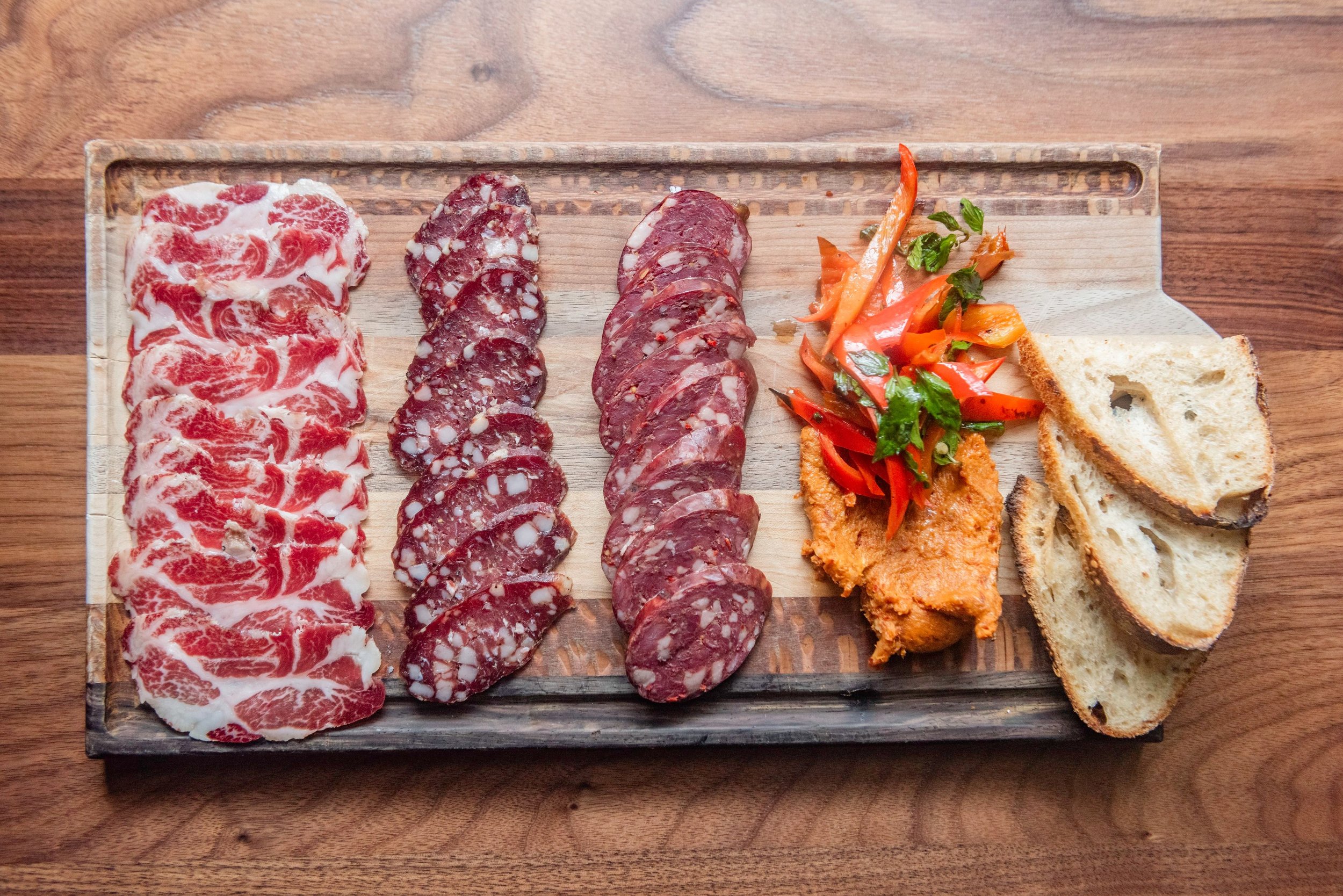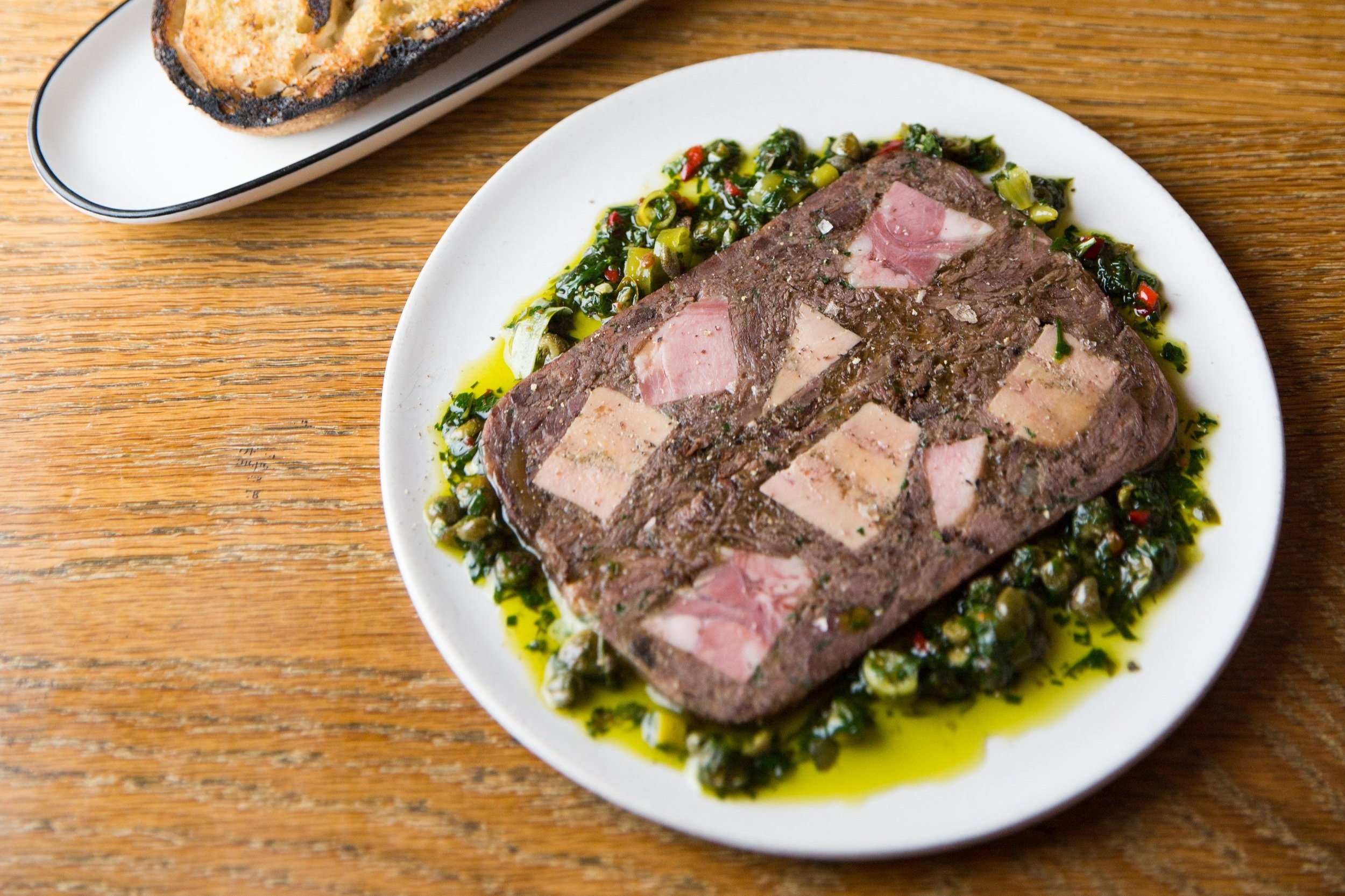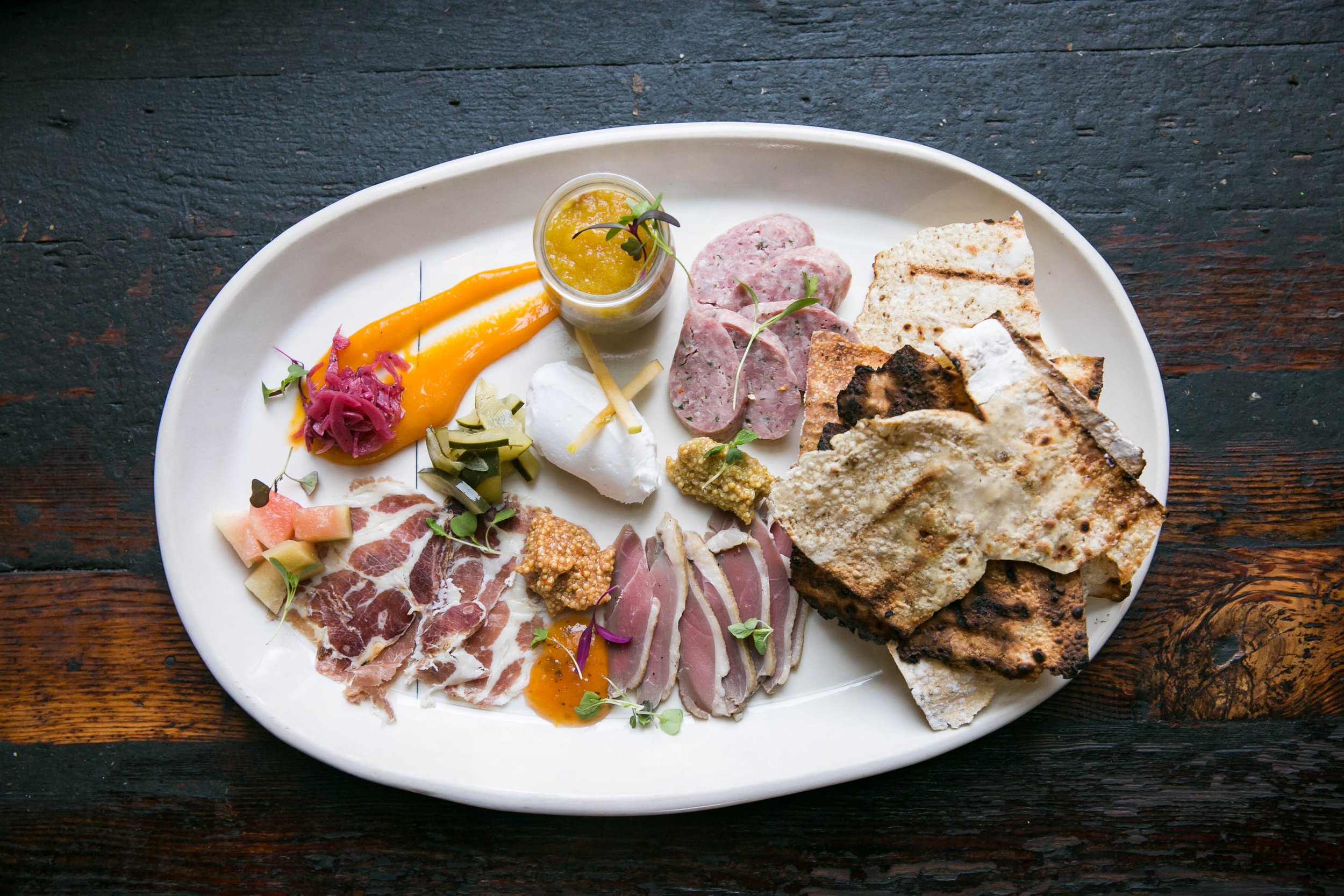Truss, Tie, Hang, and Dry
Salumi is a highlight of the Vetri Cucina menu thanks to Chef Jacob Rozenberg.
As he rose through the ranks at Vetri Cucina, Chef Jacob Rozenberg picked up a personal passion along the way. Salumi, he realized, spoke to him.
“When I started at Osteria,” says Rozenberg, “Vetri was open six days a week. On the seventh day, we would all get together and make salami for the restaurants. It was awesome. I was entry level, but had the opportunity to show up on my day off to pump salami, tie it up, and age it for the whole restaurant group.” Learning the technique and methods of curing from Chef Marc Vetri, Rozenberg was energized by the program. He turned down a promotion at Osteria and went to work at Vetri as a line cook.
In 2015, however, when Vetri sold his other restaurants to Urban Outfitters, the salumi program needed to be scaled down drastically because “it didn’t make sense to have a walk-in just for salumi for one restaurant.” Rozenberg still saw immense value in the program and decided to take initiative. He went to Osteria and picked up one of their spare wine fridges. He converted that fridge into a salumi curing cabinet. “You’re really just trying to control humidity and temperature,” says Rozenberg, who spent time learning from other chefs around the country as he steadily built the program up over the years. “[Now], I have a temperature control switch for my hydrometer, thermometer, and dehumidifier which kills the power to those things at 55°F or seventy-five percent humidity. So then it's just about finding good meats and hanging them.”
Since he took it over, the program has evolved substantially, and there is typically a dish featuring the cured meats on the tasting menu, along with a $30 salumi board. It comes down to simply “highlighting the flavor of the meat,” says Rozenberg. “More often than not, we are buying really nice meat and just trying to preserve it. There is so much you can get from different cuts of meat. You get these great aromas and flavors just from where they come from on the pig.” As a result, he takes a reserved approach to the cured meats. “Sometimes I’ll add fennel or anise seed in there, but that’s not make or break,” says Rozenberg, “what is make or break is when you are curing. We are using larger crystal salt.”
Despite the somewhat smaller size of the program, there has been plenty of room for experimentation. Rozenberg has been intentional about letting the flavors, textures, and quality of the meats guide his creativity and composition. Unlike the cured meats, the sausages are “a whole other ballgame.” At first, “we did a pork ‘nduja with chiles, but then we realized we can do a blank canvas ‘nduja with just salt and sugar. Then, you can buzz that up with salsa verde in the food processor and make green ‘nduja or add shrimp and do shrimp ‘nduja. There are so many things you can do with it!” says Rozenberg. A traditional ‘nduja is served as an accompaniment to the restaurant's bread and butter service.
VETRI’s House Salami Board: (1) Coppa; (2) Wild Boar Salami with Black and Green Peppercorns; (3) Lamb Shoulder Sausage; (4) ‘Nduja; (5) Mint and Charred Aleppo Pepper-Honey Dressing; (6) House Sourdough | Photos: WIL BLUNT
His flexibility and enthusiasm didn’t stop there. He looked for other ways he could improve the program and the product, and found inspiration in rather established techniques. For the wild boar sausage, Rozenberg decided “we don't need to grind our sausage, we can just chop it. It adds a great texture. It’s old school.” And for the lamb shoulder sausage, which is also hand-chopped, Rozenberg uses pork blood in the blend. “They aren't blood sausages,” says Rozenberg. They “have the bite and chew of a normal sausage but get the minerality from the blood.” With the addition of fresh Fresno chiles, the sausage mimics a merguez or Calabrian-style sausage, but is then smoked in a Texas-style smoker like a kielbasa.
As the program grew, so did Rozenberg’s role at the restaurant. He moved from station to station and was promoted over the years, but it was the culture and community at Vetri, the mentorship and support from Marc Vetri, as well as his passion-filled salumi program, that kept him “interested for over a decade.” Rozenberg operates the program with rather minimal help, but that has started to change. Now, he is creating opportunities for members of his staff to learn, like he did, how to “truss, tie, hang and dry the meats; scale up the recipes; and massage the meats over the curing process.” It is one of the perks of leadership, being able to integrate your own passions into your work and pass that knowledge on to your staff, and Rozenberg has taken full advantage of the position. But as he sees it, it’s natural, because “everyone is always training, that's how it is here.”




